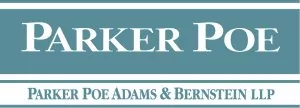The United States Supreme Court issued a ruling Monday resolving the question of whether filing a proof of claim for a debt that is time-barred by the statute of limitations is a violation of the Fair Debt Collection Practices Act (FDCPA). In Midland Funding, LLC v. Johnson, Justice Stephen Breyer, writing for the majority, held that filing a proof of claim for a debt that is barred by the applicable state statute of limitations is NOT a violation of the FDCPA.
The case arose out of a Chapter 13 bankruptcy case in which Midland filed a proof of claim for a credit card debt that, on its face, showed that the credit card had not been used in more than 10 years. Such a claim was barred by the six-year statute of limitations in Alabama. After successfully objecting to the claim, the debtor then sued Midland, claiming that the filing of the proof of claim on an obviously time-barred debt was "false," "deceptive," "misleading," "unconscionable" and "unfair" under the FDCPA. The district court held that the FDCPA did not apply and dismissed the lawsuit. The Eleventh Circuit reversed.
There was a split among the circuit courts on this issue (including the Fourth Circuit, which ruled that the FDCPA is applicable to these facts). The Supreme Court avoided the issue of whether the FDCPA applies in a bankruptcy context, but it did hold that the filing of a time-barred proof of claim does not violate the FDCPA. First, Alabama state law provides that a creditor has a right to payment of a debt even after the statute of limitations has expired. The Bankruptcy Code does not define a claim as only an enforceable claim and specifically provides a mechanism for the disallowance of claims. Therefore, the filing of a time-barred claim is not "false, deceptive, or misleading."
Second, although several lower courts have found that the filing of an ordinary collection lawsuit on a time-barred claim is "unfair," the Chapter 13 setting is different. Unlike an ordinary collection action where a consumer may be unaware of its defenses or pay to avoid litigation, a Chapter 13 bankruptcy has a knowledgeable trustee reviewing claims and a more streamlined process for claims than a collection lawsuit. Because the debtor elected to use the bankruptcy process, filing such a claim is not unconscionable or unfair.
Justices Sonia Sotomayor, Ruth Bader Ginsburg and Elena Kagan dissented, arguing that the lower court rulings should apply in the bankruptcy context and the filing of a collection lawsuit on a time-barred claim violates the FDCPA. The dissent argued there is no distinction between an ordinary collection action and a proof of claim in a bankruptcy.
While this ruling relieves a creditor from FDCPA liability for filing a proof of claim on a time-barred debt, creditors should still exercise caution when filing a proof of claim for a debt that may be time-barred. Creditors should discuss these issues with their attorneys before filing such a claim.
This Client Alert is intended to inform readers of recent developments in the field of Creditors' Rights, Litigation and Bankruptcy. It should not be considered as providing conclusive answers to specific legal problems.


